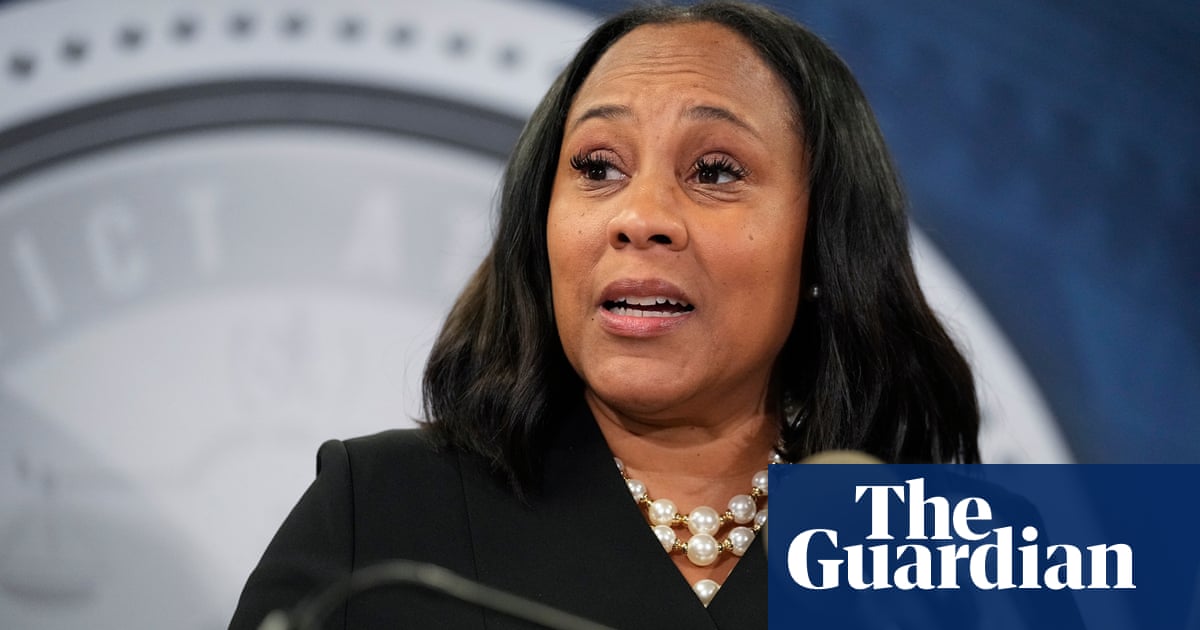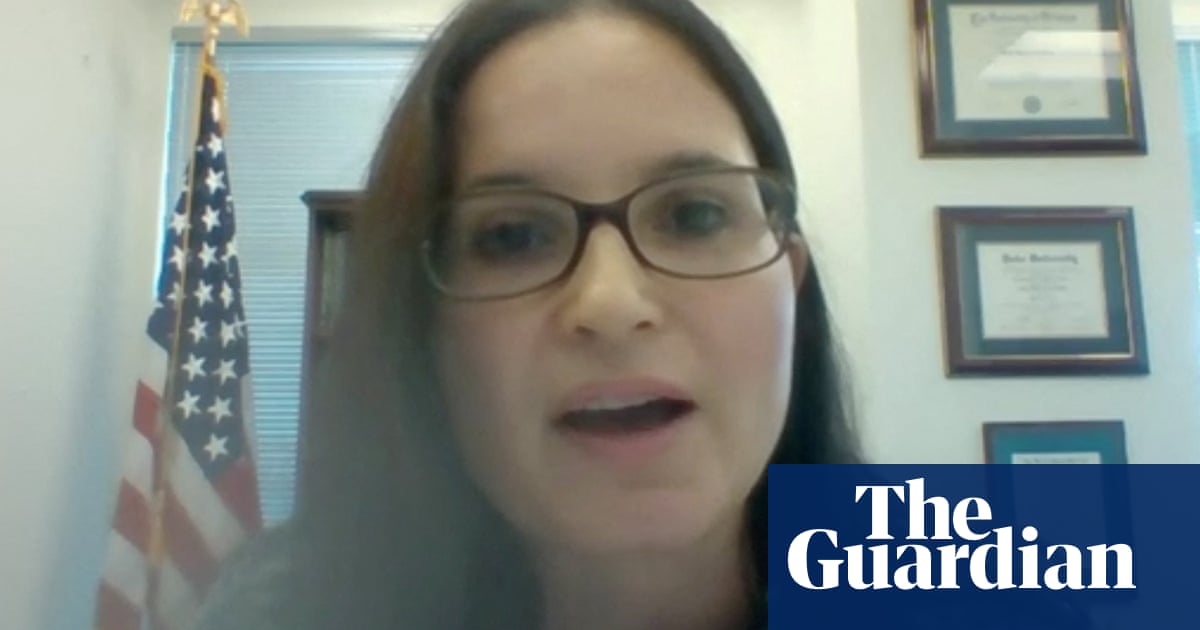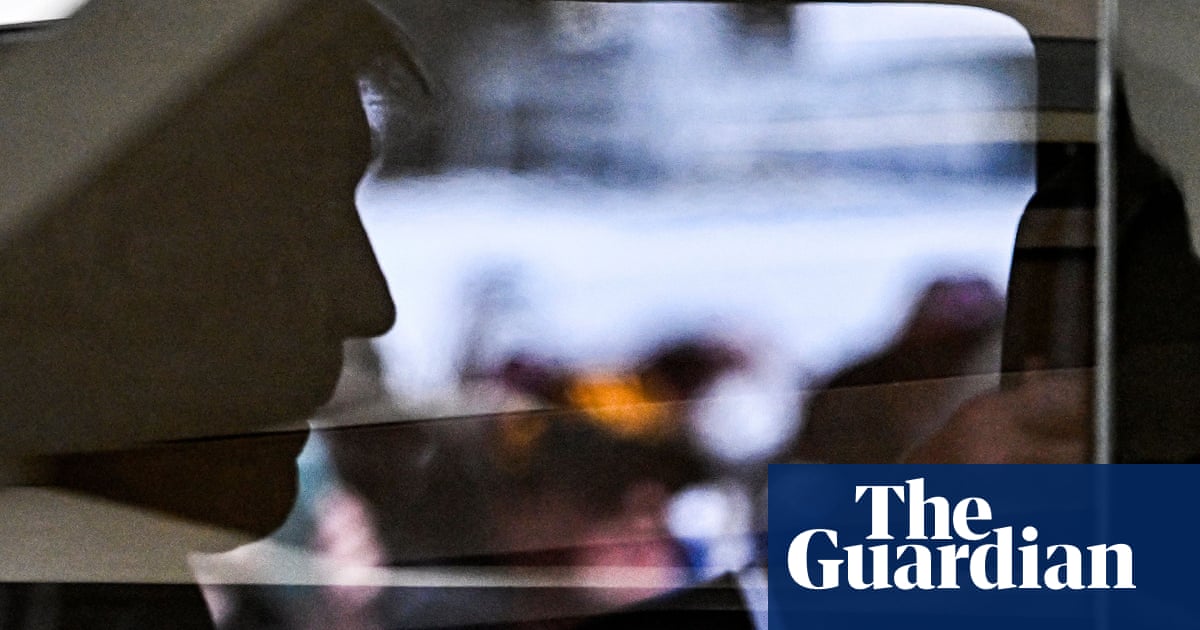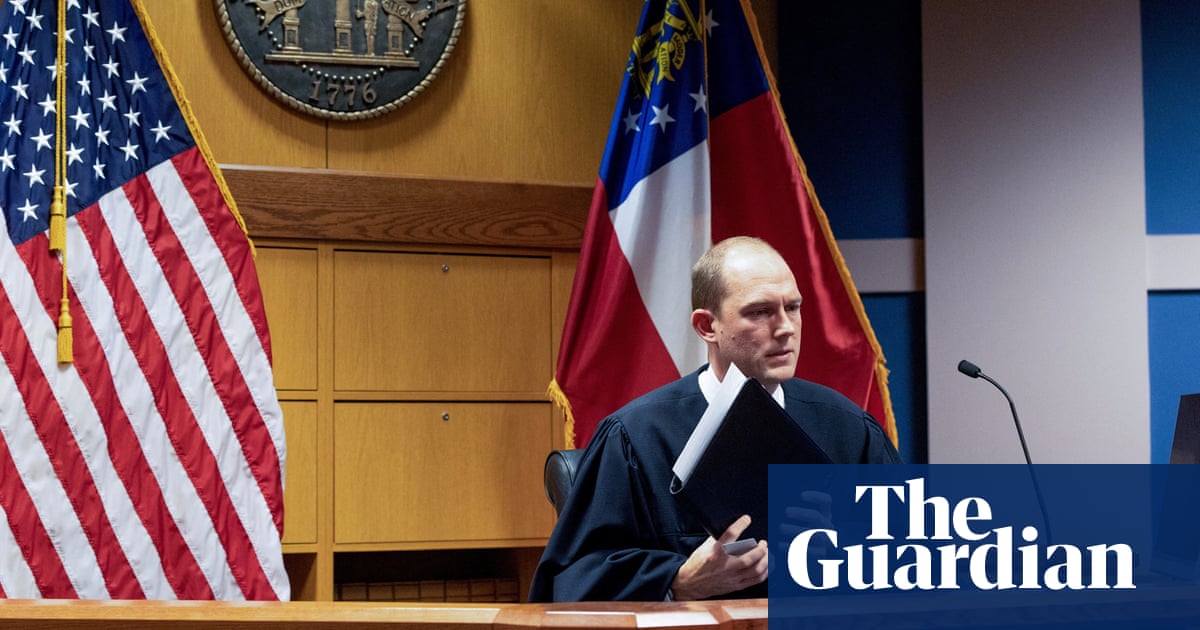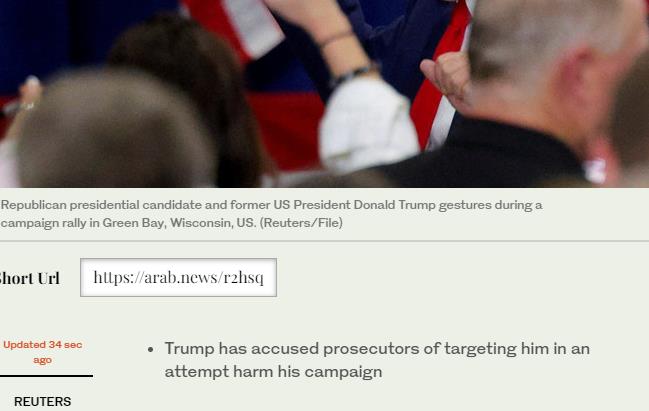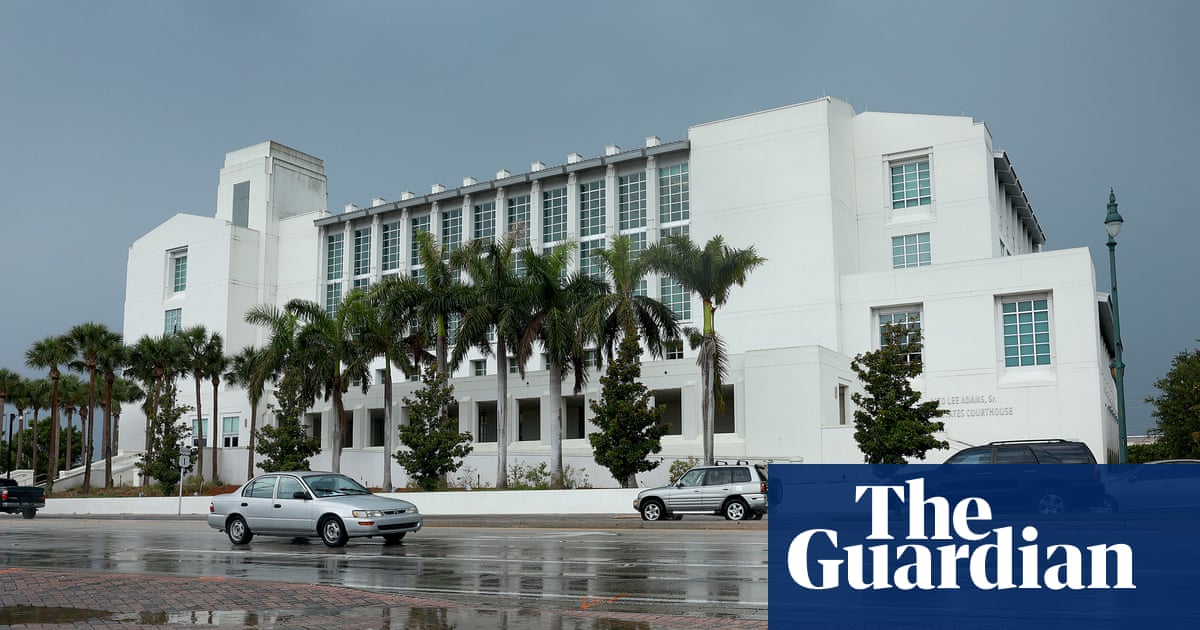
A federal judge was expected on Thursday to weigh whether the lawyers for Donald Trump’s two co-defendants, charged with trying to obstruct the US justice department from retrieving classified documents from his Mar-a-Lago club, had conflicts of interest and needed waivers to continue their defense work.
The hearings – at 1pm and 3pm ET – are notable because an adverse decision by the US district judge Aileen Cannon could have major ramifications: Trump’s lawyers are in an informal joint defense agreement with his co-defendants’ lawyers, which could be upended if new lawyers were to come in.
The prosecutors in the office of the special counsel, Jack Smith, did not specifically request for the two lawyers to be taken off the case. But they did ask for independent lawyers to also be present at the hearing, a demand rejected by Cannon, who has wide discretion to decide such matters.
At issue is the fact that the lawyer for Trump’s first co-defendant and valet, Walt Nauta, and the lawyer for Trump’s second co-defendant and Mar-a-Lago maintenance worker, Carlos De Oliveira, have also represented people that prosecutors are considering using as trial witnesses.
Trump and Nauta were initially charged in an indictment alleging the former president retained national defense documents and conspired with Nauta to obstruct justice. Trump, Nauta De Oliveira were then charged in July with additional counts in a superseding indictment.
The most pressing potential conflict, prosecutors suggested in court filings, was with Nauta’s lawyer Stanley Woodward, who represented multiple Trump employees during the grand jury investigation, including the Mar-a-Lago IT director Yuscil Taveras.
After Trump and Nauta were indicted in the classified documents case on 8 June, Taveras dropped Woodward, whose legal bills were being paid by Trump’s political action committee Save America, and retained an independent lawyer.
In the weeks that followed, Taveras decided to share more evidence with prosecutors about how Nauta and De Oliveira had asked him to delete surveillance footage showing the concealing of boxes containing classified documents at Mar-a-Lago.
The prosecutors have argued that Woodward’s prior representation could mean he might be unable to defend Nauta as vigorously as possible at trial, which could give rise to Nauta later claiming his sixth amendment right to have effective counsel had been violated.
“Cross-examination of a former or current client raises two principal dangers. First the conflict may result in the attorney’s improper use or disclosure of the client’s confidences during the cross-examination. Second, the conflict may cause the attorney to pull his punches,” prosecutors wrote.
Woodward has vehemently denied that suggestion, arguing that his prior representation was immaterial because he played no role in Taveras’ testimony before the grand jury and Taveras affirmed that Woodward had not coached him to make false statements or acted improperly.
The court filings from Woodward also questioned the basis for prosecutors seeking a conflict hearing, contending that the federal rules of criminal procedure only necessitated the court to investigate a potential conflict for a lawyer defending two or more defendants, not just witnesses.
The second potential conflict raised by prosecutors involves De Oliveira’s lawyer John Irving. According to prosecutors, Irving previously represented three witnesses described as “Witness 1”, “Witness 2” and “Trump employee 3” – who could all be called to testify at trial against his client.
Witness 1, according to filings, gave information that was inconsistent with De Oliveira’s sworn statements. Witness 1 also told prosecutors De Oliveira helped replace a lock on a closet inside Trump’s residence at Mar-a-Lago the day after boxes of classified documents were moved there.
The other potential trial witnesses also gave prosecutors information that led to charges against De Oliveira, such as Witness 2 identifying his identity on surveillance tape, and Trump Employee 3 relaying Trump’s conversation with Nauta that led him to go to Florida to delete the tapes.
Irving, for his part, has told the court in filings that there was no conflict issue because he no longer represents those three potential witnesses and his co-counsel, Donnie Murrell, would be the one conducting the relevant cross-examinations at trial.




